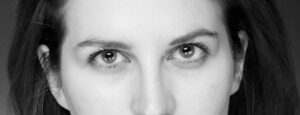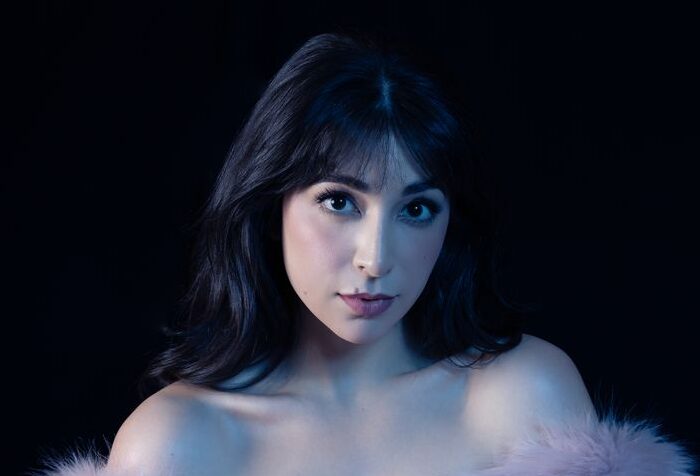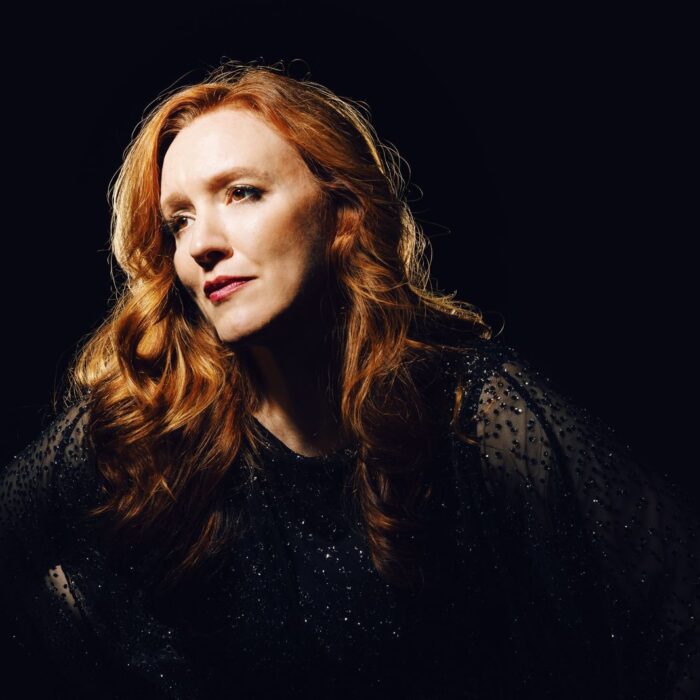
Q & A: Sarah Baxter On Her Forthcoming Production of ‘Macbeth’ At Blackwater Valley Opera Festival
By Alan NeilsonThe end of this month sees the start of Ireland’s Blackwater Valley Opera Festival, which this year will be performing Verdi’s “Macbeth.” The staging will take place in the grounds of Lismore Castle, the perfect backdrop for evoking the atmosphere of murder, treachery and ghostly interventions, set within the walls of Inverness and Dusinane castles.
The director bringing this to the stage is Irish-born, Sarah Baxter, who, having recently graduated from Irish National Opera’s Studio in 2020, is now forging a successful career as a freelance director. While a member of the studio, she worked on numerous productions as an assistant director, including “Aida,” “Madama Butterfly” and “La Cenerentola,” since which she has directed a revival of “Carmen,” also with Irish National Opera. She also co-wrote and directed “The Deadly World of Opera,” a basic introduction to opera, which was performed at five locations across Dublin to a diverse range of communities.
“Macbeth” will mark her first full-scale production as the principal director of an opera. Before the festival gets under way, OperaWire decided to meet up with Baxter to discuss what she has planned for her production of “Macbeth.”
OperaWire: What attracted you to direct “Macbeth”?
Sarah Baxter: Obviously, “Macbeth” was a play I was very familiar with, but I first came to know the opera when I was visiting my brother in Canada. I came across an old record shop and bought a pile of LP records, which included Verdi’s “Macbeth.” I was immediately taken by it, and how similar it was to the play. It became one of the works on my “to do” list. So when the Blackwater Valley Opera Festival approached me, I jumped at the chance. It is an opera I feel very comfortable directing. It is a story that has stood the test of time – a timeless story about magic and power, betrayal and relationships.
OW: The performance area at the grounds of Lismore Castle is very unusual. It is outside, with an old stone building dominating the back of the set. Did this present you with any particular challenges?
SB: It definitely presents challenges and we, that is, myself and Frances O’Connor the designer, had a conversation about this very early on. We knew that we had to acknowledge the space rather than disguise it, and so we looked at ways of using it to our advantage and created a striking design that we hope will have an impact. Hopefully, it fits with the surroundings and serves the opera well. I don’t think that we would have created exactly the same type of design for a standard theatre; it has been created specifically for the space.
Also, we are performing the opera at the grounds of a castle, and we thought that there must be ways we could use this setting that will play into the minds of the audience when they take their seats.
OW: What differences, if any, did you find between Shakespeare’s and Verdi’s “Macbeth”?
SB: I read many of Verdi’s letters that he wrote when producing both versions of the opera and I was struck by how similar they actually are to the play. Verdi’s “Macbeth” is however, a more focused telling of the story. There are fewer characters, and the prominent characters are, therefore, given more attention, so that it becomes a very clear, easy-to-follow work. One of the things that particularly drew my attention was that Verdi stated that there were three principal characters in the opera: Macbeth, Lady Macbeth, and the Witches. And I think it is his use of the witches that is significant. He uses them to create a fantastical world to a far greater degree than Shakespeare does. Both Verdi and Shakespeare successfully create a world that is familiar, truthful and recognizable in terms of the characters’ behavior and emotions. But, in Verdi’s “Macbeth” they exist in a heightened, fantastical world.
OW: How easy was it to put “Macbeth,” the play, to one side and focus on the fact that you were directing “Macbeth,” the opera?
SB: I was always very aware that I was directing the opera and not the play and I was constantly looking at the score and analyzing it in order to see what it told us about the characters and the world in which they existed. The music is very important in understanding the drama. Every aria and every chorus provide us with insights and layers of information. Macduff’s last aria, for example, is like a lament and gives us real insight into the character’s emotional state, more so than the libretto.
OW: Which version of “Macbeth” is being performed?
SB: We’re performing the first version, but with added parts from the second version and discarded parts from the first. So, it’s a blend of the two. It is the most common way “Macbeth” is now performed. I think it is the best option.
OW: Have you opted for a traditional presentation or something more ambitious?
SB: We built the production around two anchors: the performance space and the three central characters. We opted for a more traditional setting, but gave ourselves some license to create our own world so as to incorporate the opera’s fantastical elements. So, it will be recognizable yet, at the same time unfamiliar. I felt strongly that it should have an otherworldly feel to it. The opera actually starts with the witches telling us something about the world in which this opera should exist. This is what I wanted to establish from the beginning.
The costumes are designed to give a greater understanding of the characters. We use color, texture and silhouettes in the costumes to help give life to the characters, and add to the creation of the world of the opera. They also give a focus to the characters for both the performers and the audience.
OW: As you have said, there are three main characters: the Witches, Lady Macbeth and Macbeth himself. How have you portrayed them?
The Witches:
SB: I don’t want to give too much away, but I will say that the witches will be young with a Scottish-Celtic appearance. We portray them as a strong and powerful collective. They work together and possess a sense of unity. I wanted to bring out their attachment to the natural world, for which they have a deep understanding. I see them as drawing on the spirit of the earth. They are women who are familiar with the elements and know how to manipulate and use them in a way the others can’t. They don’t operate by the standards of the rest of society; they have their own code of behavior. It was, however, important that I was able to show that the other characters have free will. So, they offer up potentialities and ideas. They don’t control the other characters.
I don’t see them as evil. Rather, I want to portray them as mischievous and resourceful, although powerful.
Macbeth:
SB: He is sometimes made to appear weak, and this is a conversation that we had when discussing our ideas about the presentation. I don’t have a definitive answer as to whether he is weak or not. However, I do think that there is a weakness in him. He is open to suggestions and the manipulation of others. On the other hand, he does show moments of strength. He is a great warrior, and you don’t get to be a great warrior without ambition. I like to look at him and Lady Macbeth as a partnership in which they respond to each other’s ambitions, so they act as a pair. For me, this is a much more interesting aspect of their personalities. When he gets the initial prophecies from the witches, for example, his instinct is to immediately write to his wife about them. This is quite a telling reaction, although I don’t want to take it too far. I don’t think Lady Macbeth would have married him if he didn’t match her own ambitions.
Lady Macbeth:
SB: She’s a great character and she has some of the best music. Actually, it was a joy to spend time analyzing her character and her relationship with Macbeth.
She is a person of intelligence, ambition and desire. But, she is also aware that there are limitations as to how her goals can be realized within the world in which she lives. She knows she has to work towards her goals through her husband. She is also impatient. There were times I wanted to say to her, “Stop, take a break.” She is also a queen before she becomes a queen. She possesses a sense of authority. She is confident and self-assured, but also feminine and elegant and we have costumed to illustrate these characteristics.
OW: What do you see as the main driver behind the drama?
SB: For me, it is about a series of choices. There are so many points throughout the opera at which the story could just end. But it doesn’t because the choices made by the characters keep the drama moving forward. I know some people think the witches manipulate the situation, but for me, they offer up the situation for others to make the choices. This is what makes everything interesting. The decisions that are made lead to increasingly dire consequences.
OW: Were there any points in the opera that you found particularly difficult to deal with?
SB: Actually, the chorus at the beginning of Act four took me some time to figure out how I should stage it. Initially, it felt disconnected from the rest of the choruses in the drama and the world in which the opera is set. It was only when I went back to the initial design that I was able to find a way. “Macbeth” is set in a world that is not balanced. It is already broken. It is already a world at war. These ideas are introduced early on in the opera, well before you get to the chorus in Act four. But these people have always been around in the background, and here their suffering is given a voice.
OW: What would you like the audience to take away from the performance?
SB: I hope that they become immersed in the story. It is a fantastic opera with fantastic characters and an engaging plot and I hope that they are able to lose themselves in it. I am not pushing any messages. I just want the people who come to enjoy it!



